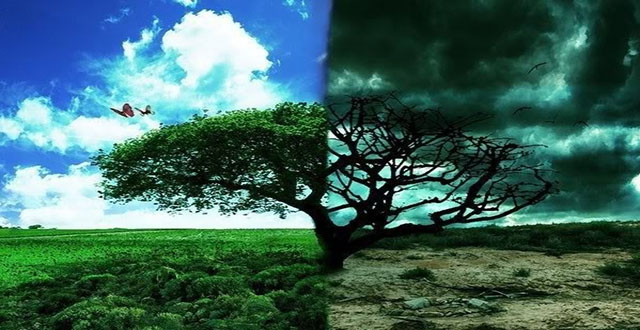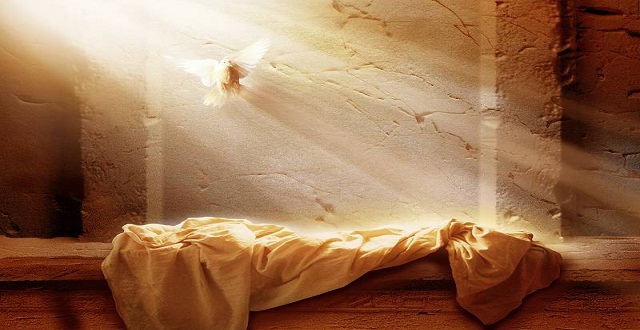If there are levels for heaven, are there levels for hell?
What is understood from Quranic verses and the ahadith is that, similar to heaven,[1] hell has different levels, and sinners will be put into these levels depending on the number and type of their sins.
In a hadith from Imam Baqir about the verse: “لَها سَبْعَةُ أَبْوابٍ لِكُلِّ بابٍ مِنْهُمْ جُزْءٌ مَقْسُوم”[2] “It has seven gates, and to each gate belongs a separate portion of them.” the Imam says: “I have been informed that God has made seven levels for hell.”
The first level which is the highest is called “Jahim”. People at this level stand on hard rocks and their brains boil from the heat.
The second level is called “Ladhaa”. At this level, the heat peels off the skin of the feet, hands and head. The fire calls to itself the people who opposed God’s commands and gathered wealth.
The third level is called “Saqar”. In it is a fire that does not leave anything and nothing is immune from it. It completely changes the form of the skin. Nineteen angels are in charge of this level.
The fourth is “Hutamah” and from it rise flares the size of palaces. They rise so fast, as if they are yellow camels that disperse in every direction. Whoever is touched by them turns black, like kohl.
The fifth is “Haawiyah”[3] (falling to the Asfal al-Safilin, i.e., the lowest of the low) in which groups of people call out: “O Owner [the name of an angel there]![4] Help us.” When the angel comes to them, he brings yellow and red dishes to them in which is a bad-smelling water. When they drink the water their skin becomes like heated metal. Once they pick up the dish to drink from it, the flesh on their face falls into it due to its heat. This is what the following verse refers to: “وَ إِنْ يَسْتَغيثُوا يُغاثُوا بِماءٍ كَالْمُهْلِ يَشْوِي الْوُجُوهَ بِئْسَ الشَّرابُ وَ ساءَتْ مُرْتَفَقاً” [5] “If they cry out for help, they will be helped with a water like molten copper which will scald the faces. What an evil drink, and how ill a resting place!” Whoever goes to that level of hell will be in fire for seventy years, and every time his skin burns, new skin will replace it.
The sixth is called “Sa’ir” in which there are three hundred tents of fire, and every tent has three hundred palaces of fire and every palace has three hundred houses of fire and every house consists of three hundred types of pain and torture caused by fire. This is what God is referring to when He says: “إِنَّا أَعْتَدْنا لِلْكافِرينَ سَلاسِلَ وَ أَغْلالاً وَ سَعيراً”[6] “Indeed We have prepared for the faithless chains, iron collars, and a blaze.)”
The seventh and last level is called “Jahannam” in which is “Falaq”. Falaq is a ditch in hell that when opened, fire blazes out. This level consists of the most painful of punishments….[7]
—————————————————————-
[1] See: The Seven Heavens, Question 1859 (site: 1915).
[2] Hijr:44.
[3] The reason for this name is that “Hawiyah” is derived from the root word “هوی”, which means to fall. The name refers to falling into Asfal al-Safelin.
[4] The name of the angel guards of Hell.
[5] Kahf:29.
[6] Insaan:4.
[7] Majlisi, Muhammad Baqir, Bihaar al-Anwaar, vol. 8, pp. 289-290, al-Wafaa’ Institute, Beirut, 1409 AH.
Will there be a new life in the world after the Day of Judgment?
An answer to this question depends squarely on an appropriate understanding of the Day of Judgment, resurrection and its signs. We will therefore elaborate on some of the signs of the Day of Judgment and then an answer will follow to the foregoing question:
First: What is inferred from the verses of the Holy Quran is that the world ends with the arrival of the Day of Judgment and that a new world will come into being after the day of Resurrection.[1] The Holy Quran has made mention of some signs which we shall mention under three categories:
A) Incidents which take place before the end of the world: One of the pre-resurrection signs is the coming of the last Messenger. Another sign of the end of this period is a smoke that will appear in the sky. The Quran says: “Then watch thou for the Day that the sky will bring forth a kind of smoke (or mist) plainly visible.”[2]
It is narrated that a companion of the Holy Prophet (s) asked him, “What is this smoke?” The Holy Prophet (s) recited the above verse and then said, “This is such a smoke that will envelope the entire world from east to west, and it will remain for 40 days and 40 nights. A believer will experience the uneasiness of cold (like hay fever), whereas the smoke will come out of the nose, ears and rear of a disbeliever”.[3]
B) Incidents which take place on the verge of the end of the world:
1. The mountains will be crushed following a few other incidents. They will be shaken by quakes,[4] lifted up[5] and then they will be moved[6] and crushed at one stroke[7]. Then they will turn into a heap of[8] sands and then they turn into dust and disperse.[9]
2. The seas will become turbulent and will explode. The Quran says: “And when the seas are made to flow forth.”[10] “When the oceans boil over with a swell.”[11]
3. Devastating quakes: On the Day of Judgment, an ear-shattering sound will follow the sounding of the trumpet, and an unequalled tremor will rock Earth. Massive mountains, trees—in fact every place on Earth—will begin to rock at the same time. People will panic and be gripped by great fear. The most fear-inspiring aspect is that no one can escape it or find any sort of refuge, for this tremor is not like the ones with which we are familiar; rather, this tremor will continue until Earth has been flattened: “Mankind, heed your Lord! The quaking of the Hour is a terrible thing.”[12]
4. On the Day of Judgment, the Sun and the Moon, the Earth’s two sources of light, will be darkened one after the other: “When the sun (with its spacious light) is folded up; When the stars fall, losing their luster.”[13]
5. The sky and other planets are rent asunder: “When the heaven is split asunder.”[14]
6. The incidents which will be created at the start of the Day of Judgment and resurrection:
The last stage of the Judgment Day involve incidents which take place following the two preceding stages: ” On the day when the earth shall be changed into a different earth, and the heavens (as well), and they shall come forth before Allah, the One, the Supreme.”[15], [16]
It can be concluded from the above that the Day of Judgment is not the continuation of this world. This world shall turn into a mess completely because great explosions and horrific quakes will destroy everything. Thereupon, the world will emerge with a new design on the mess and ruins of this world. The resurrection of human beings shall take place in that new world.[17]
Second: There are also other evidences in the Quran which somehow substantiate the temporariness of this world. For example, the Holy Quran says, “We created not the heavens and the earth and all between them but for just ends, and for a Term Appointed.”[18] That appointed day or term is the Day of Judgment when the skies and the earth are folded up and the earth will go through a metamorphic change. Not only the earth but also the sun, moon and other planets will not be in this system for ever. Their movement and the system in which they operate are for a temporary period of time. When the appointed time expires, then they will be overthrown and rent asunder.[19]
Scientific predictions made about the world and the existing system also accord, to a great extent, with the revelation and religious underpinnings. If there is a view opposing the revelation, it is, according to us, nothing but a conjecture which is soon or late perfected or modified by other scholars and drawn closer and nearer to the realities of the Quran.[20]
Third: As for whether or not God will create a new creature following the Day of Resurrection and upon people’s going to Paradise and Hell, it is a question which has been touched by some traditions:
Jabir bin Yazeed says that he asked Imam Baqir, peace be upon him, about this verse: “Were We then worn out by the first creation? Yet they are in doubt about a new creation. “[21]
He (Imam Baqir) said, “O Jabir, the explanation of that verse is that when Allah, the Exalted, will destroy this creation and this world, and doom people to living in paradise and in hell then Allah, the Sublime, will create a new cosmos from the beginning, and will create a new creature without male or female that will worship Him and accept the oneness of Him. Further, He will create a new earth without this earth for that creature, which will carry the burden of it. And He will create a new sky/heaven other than this sky that will spread its shadow on them.
Perhaps you think God has created only one universe and you think God has not created any man except you.
Yes by Allah, the Sublime, who has created thousands of universes and thousands of Adams, you are in the last of the worlds and you are the last descendants of those Adams”[22]
Late Allamah Muhammad Hussein Tabatabai (may his soul rest in peace) quote this meaning and considers it as one of the possible (not the only) meanings of this verse.[23]
Therefore, this world with its sky and earth will be overthrown after the Day of Judgment. And if a world is also created, it will have different features and would be beyond our imagination and perception.
For further information, see the following indexes:
1. The Nature of the Relationship of Action with Temporal Incidents, question 2229 (site: 2525)
2. The Age of Mankind, 637 (site: 701).
3. The creation of Adam and the Findings of Scientists, 2999 (site: 3297)
——————————————————————–
[1] – Makarem Shirazi, Naser, Payam-e Qur’an (The Message of the Quran), vol.6, pg. 21, Amirul Momeneen School Publications, 1374 (1995).
[2] -Dukhan, 10
[3] – Payam-e Qur’an (The Message of the Quran), vol.6, pg. 27, Amirul Momeneen School Publications, 1374 (1995)
[4] -Al-Muzzammil, 14
[5] – Al-Haqqah, 14
[6] – Tur, 10
[7] – Al-Haqqah, 14
[8] – Al-Muzzammil, 14
[9] – Al-Waqeah, 5 and 6.
[10] – Al-Infitar, 3
[11] – Al-Takwir, 6.
[12] – Al-Hajj, 1.
[13] – Al-Takwir, 1 & 2.
[14] – Al-Inshiqaq, 1.
[15] – Ibrahim, 48
[16] – See: question 1946 on our website.
[17] – Makarem Shirazi, Naser, Payam-e Qur’an (The Message of the Quran), vol.6, pg. 40
[18] – Al-Ahqaf, 3.
[19] – Qira’ati, Mohsen, Resurrection, pg. 200, Jame’ah Islamic Modarresin Publications, Qom, 3rd edition.
[20] – Ibid, pg. 201.
[21] – Quran, Qaf 50, 15 أَ فَعَیِینا بِالْخَلْقِ الْأَوَّلِ بَلْ هُمْ فِی لَبْسٍ مِنْ خَلْقٍ جَدِیدٍ”
[22] – Faiz Kashani, Tafsir al-Saafir, vol.5, pg. 60, Tehran, Sadr, 1415 A.H.
[23] – Tabatabai, Muhammad Hussein, translation by Muhammad Baqir Musavi Hamedani, vol.18, pg. 534, Jame’ah Modarresin Publications, Qom, 1374 (1995).
Is there any death in Paradise and Hell?
In the greater resurrection which is a world next to the intermediate world, all human beings from the first to the last are gathered and enter a new phase of living; they receive the rewards for their deeds and actions in the worldly life.[1]
The Quran, traditions and rational arguments agree that there is no death after the Day of Judgment occurs and human beings go to Paradise and Hell. We shall now mention a few of those verses:
The Holy Quran uses as many as seventy names to make a reference to the Day of Judgment. Each name refers to a particular attribute or feature. For example, the “Day of Resurrection” used in the Quran refers to the fact that all human beings and existents are resurrected on this Day. Since this day is eternal and there is no death in it, it is called the Day of Eternal Life (yawm al-kholud)[2]. This name has been mentioned in the holy chapter Qaf.[3]
In addition, the Quran names the people of Paradise and Hell more than seventy times describing them as immortal. We mention two verses of the Quran as examples:
“Nay, those who seek gain in evil, and are girt round by their sins,- they are companions of the Fire: Therein shall they abide (For ever).”[4]
“But those who have faith and work righteousness, they are companions of the Garden: Therein shall they abide (For ever).”[5]
It has also been stated in the traditions that there is no death in the hereafter. For example, Allamah Baqir Majlisi mentions different traditions in the eighth volume of his Behar al-Anwar (chapter 26). In one of the traditions narrated by him in this book, it has been said that death is beheaded in front of the people of Paradise and Hell like a sheep. The Prophet has been reported as having said: “When God takes the people of Paradise to Paradise and the people of Hell to Hell, death is brought to them and decapitated like a sheep in front of them. There and then a harbinger calls out:
“یا اهل الجنة خلود فلا موت یا اهل النار خلود فلا موت”[6]
That is, there is no death on the Day of Judgment; life in the hereafter is characterized by immortality and perpetuity.[7]
Rationally, man’s soul is abstract and every abstract thing is immortal. Therefore, there is no death in the hereafter and human beings do not die after they go to Paradise or Hell.
Some of the arguments presented by Muslim philosophers and theologians on the immateriality of the soul are as under:
1. The soul perceives the general concepts or generalities. Generality is abstract, so is its perceiver.
2. The soul has power over matters which the bodily things have no power over. For example, the soul can imagine infinite things but the body cannot.
3. When we see that all those things which are perceived by our senses are perceived by one thing, it stands to reason that the soul is abstract. That is because the senses do not know anything about one another’s perceptions. For example, the eye sees the whiteness of an object like cubic sugar but it does not know that it is sweet. Or we put something which we have not seen in out mouth; we feel its taste on our tongues but we do not see its color. It is therefore clear that there is an abstract general thing in us which perceives all these varied things.
4. The physical powers get worn out and start malfunctioning over time but the soul is not as such. That is because too much intellection further strengthens it. The soul is therefore not from the category of the body; it is abstract.[8]
5. Another reason for the abstractness of the soul is oneness or unity of the personality. The body is susceptible to changes but there is one thing that never accepts any changes and that is what we call “soul”. The soul does not change with the change of matter; that is because it is abstract.[9]
There are some people who do not believe in the immateriality of the soul saying that it is physical and the same as the brain. However, their arguments substantiate only that the brain cells are somehow linked with the perception not that the brain perceives the general and universal concepts.
Therefore, the immortality of the soul is closely linked with the independence and abstractness of the soul because if it is abstract, it can still exist after death.
The arguments concerning the immortality of abstract things are presented in philosophy. For further information in this regard, you should refer to philosophy books.
————————————————————————-
[1]- The Intermediate World is personal in the sense that every human enters the intermediate world after death. As for the greater resurrection, it is relates to the entire human beings who are resurrected collectively at once. See: Worldview, by Shahid Mutahhari, under the title Resurrection, pg. 31.
[2] – Makarem Shirazi, The Message of the Quran, “Resurrection”, vol.5, pg. 58.
[3] – “Enter ye therein in Peace and Security; this is a Day of Eternal Life!” [Qaf (letter Qaf), 34]
[4] – Al-Baqarah, 81
[5] – Al-Baqarah, 82
[6] – See: Behar al-Anwar, vol.8, pp.344 & 345. The full Arabic tradition is as under:
وَ رَوَى مُسْلِمٌ فِی الصَّحِیحِ بِالْإِسْنَادِ عَنْ أَبِی سَعِیدٍ الْخُدْرِیِّ قَالَ قَالَ رَسُولُ اللَّهِ ص إِذَا دَخَلَ أَهْلُ الْجَنَّةِ الْجَنَّةَ وَ أَهْلُ النَّارِ النَّارَ قِیلَ یَا أَهْلَ الْجَنَّةِ فَیُشْرِفُونَ وَ یَنْظُرُونَ وَ قِیلَ یَا أَهْلَ النَّارِ فَیُشْرِفُونَ وَ یَنْظُرُونَ فَیُجَاءُ بِالْمَوْتِ کَأَنَّهُ کَبْشٌ أَمْلَحُ فَیُقَالُ لَهُمْ تَعْرِفُونَ الْمَوْتَ فَیَقُولُونَ هُوَ هَذَا وَ کُلٌّ قَدْ عَرَفَهُ قَالَ فَیُقَدَّمُ وَ یُذْبَحُ ثُمَّ یُقَالُ یَا أَهْلَ الْجَنَّةِ خُلُودٌ فَلَا مَوْتَ وَ یَا أَهْلَ النَّارِ خُلُودٌ فَلَا مَوْتَ قَالَ وَ ذَلِکَ قَوْلُهُ وَ أَنْذِرْهُمْ یَوْمَ الْحَسْرَةِ الْآیَة.
[7] – It should be noted that one who goes to Hell does not always remain there. In fact, eternal life in Hell is for a specific group of people.
[8] – Allamah She’rani, translation of Sharh al-Itiqad, pg. 242 – 262.
[9] – Makarem Shirazi, The Message of the Quran: Resurrection, vol.5, pg. 287.
Do the Holy Prophet’s parents enter Paradise?
In order to get a clear answer to the above, it is necessary to know what the conditions for entering Paradise are. Based on the verses of the Holy Quran, belief in God and good deeds are generally the most important requirements and conditions for entering Paradise.[1] “And whoever does good deeds whether male or female and he (or she) is a believer– these shall enter the garden, and they shall not be dealt with a jot unjustly.”[2]
Now we shall take up the discussion to verify these conditions in respect of the Holy Prophet’s parents.
1. Belief in One God
There are multiple views about whether or not the Holy Prophet’s parents and ancestors were monotheists. We will point out those views along with its arguments and reasons.
Shia scholars [3]as well as a group of Sunnis[4] maintain that the Holy Prophet’s parents and ancestors were Muslims[5] and they worshipped the One God. Shaykh Saduq writes in his Risalah al-I`tiqadat: In our opinion, the Prophet’s parents from Adam to Abdullah and Abu Talib and also Amina, the Prophet’s mother were Muslims.”[6]
There are several reason and proofs some of which are mentioned as under:
A) Verses from the Holy Quran
The Holy Quran says: “Who seeth thee standing forth (in prayer), And thy movements among those who prostrate themselves.”[7]
This verse means that God, the Exalted, transfers the Holy Prophet’s soul from one prostrator to another. According to this meaning, the verse denotes that the Prophet’s entire ancestors were Muslims[8] and there are narrations under this verse according to which prophethood was successively transferred from the loin of one prophet to that of another prophet.[9]
B) Traditions
There are two sets of traditions about the Holy Prophet’s ancestors believing in One God and worshipping Him:
1. Traditions which imply that the Prophet’s parents were pure. For example, the Holy Prophet, peace be upon him and his family, said: “Gabriel descended upon the Messenger of God (S) and said: ‘The Most Glorious God salutes you and says: ‘verily I have forbidden hell upon the loin that produced you, the womb that contained you and the arms that raised you…'”.[10] As well, the Prophet (S) said: “God, the Glorified, always transferred me from pure loins down to pure wombs, and the bodies of ignorance have not touched me.”[11] The above hadiths (traditions) reach the status of spiritual tawatur[12] also.[13]
2. There are traditions according to which the Holy Prophet (S) will intercede with them on the Day of Judgment. The Messenger of God (S) says: I ask forgiveness for four people: Aminah bint Wahab, Abdullah ibn Abd al Muttalib, Abu Talib bin Abdul Muttalib and a man from Ansar who has a pact of brotherhood with me and has asked me to ask for his forgiveness.”[14] Based on the order of the Quran, it is not permissible for the Prophet (S) to intercede for pagans and pray for their forgiveness.[15] When the Messenger of Allah (S) says that he will intercede with his parents, it shows that they were monotheists.[16]
C) Historical Evidence
Based on historical texts, not only there is not any explicit evidence to show that the Prophet’s ancestors were polytheists; rather there are concrete proofs indicating that the Prophet’s ancestors were monotheists and worshippers of the One God. An example of this is Abdul Muttalib’s saying and supplications when Abraha, the Ethiopian, attacked Mecca to destroy Ka’ba, because at this time, Abdul Muttalib did not turn to idols for protection of Mecca but he consigned the matters to God.[17]
2. Requirement of a Good Deed
When it comes to the virtues and personal qualities of Amina, mother of the Messenger of God, there are reports in the Islamic sources which entirely indicate the greatness of her personality. Abdul Muttalib, addressing his son, says: “By God, the Exalted and the Glorified, there is no girl in Mecca like Amina, because she is modest and polite and has a pure soul. She is wise, understanding and faithful.”[18] She is the mother of the person who is the root and source of all creation, virtues, morality and good deeds; the reflection of all of God’s glorious and magnificent features and attributes.
Conclusion: Considering that the Prophet’s parents bore the conditions necessary for entering Paradise, it can be said that the Prophet’s parents and ancestors were among the good doers and people of Paradise.
——————————————————————–
[1] – There is no doubt that these two principal conditions consist of manifestations and sub-titles.
[2] – Nisa, 124.
[3] – Allamah Majlisi, Behar al-Anwar, vol.15, p. 117, Dar Ihya al-Turath al-Arabi, Beirut, 2nd edition, 1403 A.H. Shaykh Saduq, al-I’tiqadat, p. 110, al-Mo’tamar Lil-Shaykh al-Mufid, Qom, 2nd edition,1414 A.H.
[4] – Aalusi, Sayyid Mahmood, Rohul Ma’ani fi Tafsir al-Quran al-Azim, vol.10, p. 135, Dar al-Kutub al-Ilmiyah, Beirut, 1st edition, 1415 A.H; Fakhruddin Razi, Tafsir Mafatih al-Ghayb, vol.13, pp. 32-33, Dar Ihya al-Turath al-Arabi, Beirut, 3rd edition, 1420 A.H. Haqqi, Boroswi, Ismail, Tafsir Rohul Bayan, vol.6, p. 313 and 314, Dar al-Fikr, Beirut, (date not mentioned); Ajjeloni, Jarrahi, Ismail bin Muhammad, Kashful Khifa wa Mazil al-Albas ‘Amma Ishtahara min al-Ahadith, vol.1, pp. 60-62, Darul Kutub al-Ilmiyah, Beirut, 3rd edition, 1408 A.H.
[5] – Vide: The Requirements of Islam and Belief, 1311; Quran and the Meanings of Islam and Muslims, 665.
[6] – Al-I’tiqadat, p. 110.
[7] – Shu’ara, 218 and 219: «الَّذی یَراکَ حینَ تَقُومُ وَ تَقَلُّبَکَ فِی السَّاجِدینَ».
[8] – Vide: Shaykh Mufid, Awael al-Maqalat fil Mazaheb wa al-Mukhtarat, pp. 45 – 46, al-Mo’tamar Lil-Shaykh al-Mufid, Qom, first edition, 1413 A.H.; Sanad, Shaykh Muhammad, Al-Sahabah bayn al-Adalah wal-Ismah, pp. 97-98, Lisan al-Sidq, Qom, first edition, 1426 A.H.; Rizvani, Ali Asghar, Shia-Shenasi wa Pasokh be Shobahat, vol.1, pg. 260, Mash’ar Publication, Tehran, 2ndedition, 1384 (2005).
[9] – Kufi, Furat bin Ibrahim, Tafsir Furat al-Kufi, researched and edited by Kazem, Muhammad, pg. 304, Printing and Publication Institute in the Ministry of Islamic Guidance, Tehran, first edition, 1410 A.H.; Bahrani, Sayyid Hashim bin Sulayman, al-Borhan fi Tafsir al-Quran, vol.4, p.191-193, Be’atha Institute, Qom, first edition, 1374 (1995); Baghwi, Hussein bin Mas’ud, Ma’alem al-Tanzil fi Tafsir al-Quran, researched and edited by Al-Mahdi, Abdu Razaq, vol.3, p. 484, Dar Ihya al-Turath al-Arabi, Beirut, first edition, 1420 A.H.
[10] – Shaykh Saduq, ‘Elal al-Sharaye’, vol.1, pg. 177, Dawari Bookstall, Qom, first edition,1385 (2006).
[11] – Al-Borhan fi Tafsir al-Quran, vol.3, pg. 312; Tabari, Muhammad bin Jarir, Al-Mustarshid fi Imamate Ali bin Abi Talib (A), researched and edited by Mahmudi, Ahmad p. 649, Kushanpour, Qom, first edition, 1415 A.H.; Also, this narration has been mentioned some commentary and textual sources. See: Andulusi, Abu Hayyan Muhammad bin Yusuf, Al-Bahr al-Mohit fi al-Tafsir, vol.8, pg.198, Dar al-Fikr, Beiruti, 1420 A.H.; Sha’eiri, Muhammad bin Muhammad, Jami’ al-Akhbar, p. 16, Haideriyah Publications, Najaf, first edition (date not mentioned); Mafatihul Ghaib, vol.24, pg. 537.
[12] – Tawatur means to have many routes of narration that makes it intellectually impossible for all of the narrators to agree to lie about it.
[13] – Behar al-Anwar, vol.15, p. 118 and 119.
[14] – Ibid, Humairi, Abdullah bin Ja’far, Qurbul Isnad, p. 56, Aalul-Bayt Institute, Qom, first edition, 1413 A.H.
[15] – Al-Tawbah, 113: “It is not (fit) for the Prophet and those who believe that they should ask forgiveness for the polytheists, even though they should be near relatives, after it has become clear to them that they are inmates of the flaming fire.”
[16] – Behar al-Anwar, vol.15, pg. 108.
[17] – Shia Shenasi and Answers to Spurious Arguments, vol.1, p. 261.
[18] – «فو الله ما فى بنات اهل مکه مثلها لانها محتشمه فى نفسها طاهره مطهره عاقلهدینه» Behar al-Anwar, vol.15, pg. 99; Bakri, Ahmad bin Abdullah, Al-Anwar wa Mafatih al-Sorur wal-Afkar fi Mawlid al-Nabi al-Mukhtar, edited and researched by Rouhani, Ahmad, p. 117 and 118, Dar al-Sharif al-Razi, Qom, first edition, 1411 A.H.
Do Shia Muslims not go to Hell?
The question as to who the ‘saved ummah’ is has been a matter of contention and a battleground for Muslims throughout the history. These theological discussions have been mainly based on a hadith which is attributed to the Prophet of Islam, peace be upon him and his family. That hadith is called or known as iftiraq (separation) tradition. Those who have written books on sects, religions and denominations have endeavored to apply this hadith to Muslim sects in terms of their number. However, in this tradition, it has been explicitly stated that out of all the various sects, only one of them is the ‘saved sect’. That is why all the sects have been introducing and portraying themselves as the saved and prosperous sect among all the Muslim sects. In this regard, the holy Quran also refers to certain groups of people who, by making recourse to racial or tribal superiority, not only considered themselves as entitled to Paradise but they also believed that others were not worthy of entering Paradise and attaining salvation. As well, there are narrations in both Shia and Sunni sources referring to reward and punishment and Paradise and hell. At times, both sects have mentioned certain criteria for reward and punishment. With this introduction in mind, it is now necessary to clarify two basic points:
First: Has God fixed any standards for going to Paradise or Hell? The Quran refers to the sayings of those who considered themselves superior to others believing that racial and ethnic features would cause prosperity and salvation. This group of people believed that they would be subjected to punishment in Hell for a few days and then finally Paradise would be their abode. Confronting such an assumption from this group of people, God says: “And they say: Fire shall not touch us but for a few days. Say: Have you received a promise from Allah, then Allah will not fail to perform His promise, or do you speak against Allah what you do not know?”[1]
Thereupon, God sets forth a general criterion for going to Paradise and Hell. He draws the attention to the general criterion by saying “Nay, those who seek gain in evil, and are girt round by their sins,- they are companions of the Fire: Therein shall they abide (For ever). But those who have faith and work righteousness, they are companions of the Garden: Therein shall they abide (For ever).”[2]
Also, some have claimed that none other than Jews and Christians would enter Paradise. The Quran considers it as an absurd claim saying that those who make such allegations have no reason to substantiate their claim. The allegation that Paradise is reserved for them is not but a dream which they cherish. God sets forth general rule and standards for entering Paradise by saying: “Yes! whoever submits himself entirely to Allah and he is the doer of good (to others) he has his reward from his Lord, and there is no fear for him nor shall he grieve.”[3]
According to the Quranic verses, it is submission and noble deeds that make one entitled to rewards and salvation. That is to say, Paradise is not earned through chanting slogans or making an allegation. In fact, faith and good deeds are required to go to Paradise. The Quran stresses that in order for a person to become prosperous, he should abide by certain rules and principles. Good deeds are the best criterion and standard with which a man’s position in the next world is determined or measured. In other words, man is described to be either prosperous or wicked by dint of his deeds. Of course, in this categorization, the Quran names a third group of people who, according to the holy verse, are people who have hope in God’s mercy. “And (there are) others who await Allah’s decree, whether He will punish them or will forgive them. Allah is Knower, Wise.”[4]
Second: Who are the Shias who have been promised Paradise in the narrations?
There are some traditions from the Prophet (S) and the Infallible Imams (A.S.) as per which the Shias enter Paradise. The emphasis on the quality of being “Shia” makes us present a clear and tangible definition of the term “Shia” so as to better understand the narrations in this connection. Then we would be able to deal with the various understandings from such narrations.
Shia: Literal meaning
Etymologists have mentioned different meanings for the term “Shia”. They include, party, ummah, faction, companion, follower, friend, helper and a group of people who have converged or gather on a matter.”[5]
Shia: Technical meaning
Shia in its technical meaning refers to those who believe in the immediate successorship of Imam Ali (as)[6] and also believe that such succession has been alluded to him through explicit or implicit[7] mention and that it is his and his progeny’s right. Conceptually, the term “Shia” has been used for different meanings. At times, it has been used to refer to political support or advocacy or friendship and at other times, it has been used to mean following the infallible Imams (A.S.) in practice.
The Meaning of “Shia” According to Infallible Imams (A.S.)
What is understood from the narrations of the imams is that being a Shia doesn’t simply mean being affiliated with a denomination out of all other denominations, rather, being a Shia (follower) of the Ahlul-Bayt entails chastity and struggle in the way of Allah; such a person will be a true Shia. For this reason, on different occasion did the Imams deal seriously with those people who regarded themselves as Shia to justify their deeds. We will mention a few narrations from the Infallible Imams (A.S.) to clarify their point about a true Shia.
There are narrations from the Infallible Imams (A.S.) in which the qualities of a true Shia have been mentioned. Additionally, they denounce the idea that whoever is called as Shia is immune to divine punishment describing them as liars.
A man says that he said to Imam Sadiq (A.S.): “Some of your followers commit sins and say ‘we are hopeful’. The Imam replied: They are lying. They are not our friends. They are people driven here and there by their desires. Whoever has a hope of something endeavors to get it and whoever is afraid of anything, he escapes from it.”[8]
Imam Jafar Sadiq (peace be upon him): “He is not from our Shia who accepts us by only his tongue and is against our actions and our legacy. Our Shia is he whose heart and tongue favor us and who is a follower of us in practice. They are our Shias.”[9]
There are traditions describing and enumerating the qualities of true Shias. Here are two sayings from Imam Muhammad Baqir and Imam Sadiq, peace be upon them:
Jabir has been narrated to have said:
“Imam Baqir (AS) said to me: “O Jabir! Is it enough for one who claims to be Shia, to speak of his love for us?! By God, he is not our Shia, but who fears Allah and obeys Him. O Jabir! Such people will not be known, except through their humility, humbleness, trustworthiness, abundance of dhikr (remembrance of Allah), fasting, prayer, kindness towards parents, heeding needy neighbors, the poor, debtors, orphans, truthfulness, recitation of the Quran and safeguarding their tongues… they are worthy of people’s trust and confidence.”[10]
Imam Jaf’ar Sadiq, peace be upon him, said: “Our Shias are those who are pious and men of solid opinion, they are loyal and trustworthy, they are men of piety and worship, they pray fifty one (51) Rak’ats prayers during day and night, they are usually awake in the night, they observe fasts during the day, they purify their property (by paying poor-rate [Zakat]) they perform Hajj of Holy Ka’bah, they abstain from all that which is forbidden.”[11]
One of the harms or negative aspects of not explaining the proper meaning of Shi’ism is the spread of permissiveness. Over the history, we have been witnessing the behaviors of certain groups who, with an incorrect interpretation of Shi’ism, have delivered themselves from religious restrictions and have justified their falling into the quagmire of permissiveness by saying that religion means ‘knowledge of the Imam’.[12] The conclusion is that such a tendency towards Shi’ism has inflicted irreparable damages on the genuine Shia Islam.
Secondly, “As was mentioned earlier, adherence to the religion is the yardstick for reward and punishment. There is no difference, in this connection, among the segments of society. One’s lineage to a particular individual or group of people, without considering what God has taken as the criterion for salvation, will not cause nearness to God nor will it serve as a means for protection against punishments. God, the Glorified, says, “The most honorable among you in the sight of God is the most pious of you.”[13]
Addressing his brother, Zaid (better known as Zaidun Nar), Imam Reza (A.S.) says: “Oh Zayd, have you trusted upon the words of the grocers of Kufa and are conveying them to the people? What kind of things are you talking about? The sons of Ali ibn Abi Talib and Fatimah Zahra are worthy and outstanding only when they obey the command of Allah, and keep themselves away from sin and blunder. You think you are like Musa al-Kadhim, Ali ibn Husayn, and other Imams? Whereas, they took pains and bore hardships on the way to Allah and prayed to Allah day and night. Do you think you will gain without pain? Be aware, that if a person out of us the Ahl al-Bayt performs a good deed, he gets twice the reward. Because not only he performed good deeds like others but also that he has maintained the honor of Muhammad. If he practices something bad and does a sin, he has performed two sins. One is that he performed a bad act like the rest of the people and the other one is that he has negated the honor of Muhammad.”[14]
One of the duties of the religion is to reform the individual and society and to help them attain spiritual and moral perfection. This goal is not achieved without submission and adherence to divine commands which have been brought down and delivered by the messengers to human beings. Thus, it is not imaginable that the religion, which has such objectives, may have fixed or set forth an escape way for some individuals who might, despite not adhering to religious rules, enjoy the benefits and bounties of religiosity in the world and also be bestowed with blessings in the hereafter in the same way as practicing and adhering Muslims. In fact, it can be said that if it were like this, it would have been opposed to the goals of the religion. Hence, if Shia refers, as per the narrations, to following the infallible Imams (A.S.) in obeying God and doing good deeds, they will, according to the Quran, benefit from divine rewards and will enter Paradise, or else, mere psychological affiliation or attachment towards the Ahlul-Bait (A.S.) or politically following them would not cause anyone to enter Paradise.
As for the narrations which say that the first floor of Hell is reserved exclusively for sinful Muslims, we must say that the criterion for going to Paradise and Hell, according to the Quran, are a person’s deeds. A person’s individual profile shall not be taken into consideration because there must be a difference between one who is wholeheartedly believing in Islam and one who is just accepting it. God, the Exalted, says to those who claim to be believing Muslims: “Say, We submit; and faith has not yet entered into your hearts.”[15] Reciting the Two Testimonies (Shahadatayn) makes a person Muslim; he enters the pale of Islam by reciting them. That is to say, the two testimonies have something to do with the aspects of his worldly, legal and social life. One who converts to Islam enjoys certain rights which a non-Muslim does not. However, being entitled to Paradise is something beyond this. That is to say, in order for a person to enter Paradise, not only submission to God is necessary but hearty belief and good deeds are also required. That is to say practical backing is essential for gaining divine reward. Conclusively, if a person is not up to the standards and criteria for going to Paradise as mentioned in the Quran, mere qualification by the term Shia or Islam would not save him from divine punishment or entering Hell.
In conclusion, we must say that man’s deeds have been considered to be the criterion for entering Paradise. Nominal Shi’ism or Islamic identifications do not save a person from Hell fire. Hence, based on Quranic verses and sayings from the Infallible Imams, peace be upon them, Muslims and Shias who do not act upon God’s injunctions and who do not stay away from prohibitions and have not fulfilled His commands will be deprived of divine mercy and blessings and will be subjected to punishment in Hell. When it comes to whether the punishments are eternal or not or what the nature of the rewards and punishments is and how intercession works, all of these should be discussed in their appropriate place.
At the end, it should be noted that our answer to the question does not mean that being Shia has no role in one’s entering the Paradise and that whoever does good deeds, be he a non-Shia, will be entitled to Paradise. Because we believe that thought and good deeds are both important and they are like two wings with which an individual flies to eternal felicity and happiness.
For further information in this regard, vide: Tarkhan, Qasim, Mystical, Philosophical and Theological Attitude to the Personality and Revolution of Imam Hussein (A.S.), pg. 440 – 447.
Related index:
Shia and Paradise, 5350 (site: en5571)
Features and Qualities of Shia, 9835 (site: en9855)
——————————————————————-
[1] – Al-Baqara, 80
[2] – Al-Baqara, 81 – 82.
[3] – Al-Baqara, 112.
[4] – Tawbah, 106.
[5] – Ibn Manzur, Jamaluddin, Lesan al-Arab, vol.8, p. 188, Dar Sadir, Beirut, first edition, 1410 A.H.
[6] – See: Tabtabai, Sayyid Muhammad Hussein, Shia in Islam, pp.25 – 26, Big Islamic Library, Tehran, 1354 (1975).
[7] – Explicit mention means for an individual or individuals to be designated by name to take up the responsibility of imamate, while implicit mention, that the Zaydiyyah sect believes in, is when the qualities and qualifications of an imam are stated, without anyone being designated by name.
[8] – Kulayni, Muhammad bin Ya’qub, Al-Kafi, vol.2, pg. 68, Dar al-Kutub al-Islamiyah, Tehran, fourth edition, 1365 (1996).
[9] – Majlisi, Muhammad Baqir, Behar al-Anwar, vol.65, p. 164, al-Wafa Institute, Beirut, fourth edition, 1404 A.H.
[10] – Saduq,Muhammad bin Ali Amali, translated by Kamrai, p. 626,Tehran, sixth edition, 1376 (1997).
[11] – Majlisi, Muhammad Baqir, Behar al-Anwar, vol.65, p. 167, al-Wafa Institute, Beirut, fourth edition, 1404 A.H.
[12] – Man La Yahzuruhu al-Faqih, vol.4, p. 545, Islamic Publications Institute, Qom, 3rd edition, 1413 A.H.
[13] – Hujurat, 13.
[14] – Majlisi, Muhammad Baqir, Behar al-Anwar, vol.43, p. 230, Al-Wafa Institute, Beirut, Lebanon, fourth edition, 1404 A.H.
[15] – Hujraat, 14.
I wish to know what the seven paradises are. Can you explain them for me?
Dar al-Salam (Abode of Peace), Dar al-Jalal (Abode of Glory), Jannatul Mava (Garden of Refuge), Jannatul Khuld (Garden of Eternity), Garden of Eden, Garden of Paradise and Garden of Bliss (or Delight) are names for the seven paradises which have been discussed in Tafsir (exegetic) and narrative texts.
What follows is a brief explanation of each of the foregoing names. The explanations are based on what has been deduced from the Quranic verses, narrations and opinions of prominent exegetes.
1. Dar al-Salam:
God, the Exalted, says in the Holy Quran: “And Allah invites to the abode of peace and guides whom He pleases into the right path.”[1]
Some exegetes are of the view that the word “salam” (peace) in the verse refers to God, the Exalted because it is God Who invites to His house, and God’s house is the paradise.[2]
Some others have said that Dar al-Salam is the place whose inhabitants are immune to all kinds of harms and afflictions. Jubaei has been quoted as having said that Paradise has been called Dar al-Salam (the Abode of Peace) because its inhabitants are safe and at peace. The angels salute them, so does their Lord. There is nothing except peace and well-being. As well, they do not see anything there except peace and well-being. This viewpoint is affirmed and endorsed by God’ saying in the Quran where He says: “And their greeting in it shall be: Peace”.[3], [4] Also, Ibn Abbas has been quoted as having said: “Dar al-Salam is the Paradise; its inhabitants are protected from all kinds of harms, afflictions, deficiencies, diseases and ailments. The inhabitants of Dar al-Salam are immune to agedness, death and physical deterioration. They are the ones who are revered and respected and are never insulted. They are always dear and they never suffer misery and wretchedness. The inhabitants of the Abode of Peace are always needless; they never become needy; they are the prosperous ones and they never become wicked… they dwell in the palaces made of pearl and coral whose doors are open to the Throne of the Compassionate. Therein the angels descend upon them from all sides and say to them: “Peace unto you for that ye persevered in patience! Now how excellent is the final home!”[5]
Allamah Tabatabai (ra) says in his Tafsir al-Mizan while elaborating on the meaning of the verse “لهم دار السلام” [For them is the abode of peace with their Lord.]: “The word ‘salam’ gives the same literal meaning in this verse as it can be deduced from the outward meaning of verses. In fact, it means being in peace and safe from all visible and hidden afflictions and harms. Dar al-Salam is the place where there is no death, agedness, disease, poverty, anxiety etc. That is the promised Paradise.[6]
It has also been said that Paradise is called the Abode of Peace because it is the house of God and it is where one is guaranteed well-being and peace.[7]
2. Dar al-Jalal:
The second paradise is called Dar al-Jalal (the House of Glory). It has been narrated from the Messenger of Allah, peace be upon him and his family, that he said: “Whoever recites “La ilaha illallah” with a loud voice, God shall ordain His satisfaction for him and whoever reaches the position of divine satisfaction, God will give him a place near (Prophet) Ibrahim and Muhammad (s) in the House of Glory.”
The Prophet was asked: “O Messenger of Allah, where is the House of Glory?”
He replied: “It is the paradise which Allah called it after His own name. Therein the inhabitants watch God, the Glorified, every dawn and dusk.”[8]
3. Jannatul Ma’va:
Jannatul Ma’va [Garden of Refuge] is the paradise to which the spirits of the martyrs retreat.[9] It is has been narrated from the Holy Prophet (s) that he said about the significance of the month of Ramadhan: “God bestows them [those who hold fast] a thousand palaces in Jannatul Ma’va, palaces that are made of gold.[10]
4. Jannatul Khuld (Garden of Eternity):
The Garden of Eternity or Immortality is the paradise about which the Messenger of Allah (s) said: “He who wishes to live as I have lived and to die as I will die, and enter the Garden of Eternal Bliss which Allah has promised me—let him take Ali as his leader (wali), because Ali will never lead you away from the Path of Truth, nor will he take you into error.”[11]
5. Janatul Adan (Garden of Eden):
Allamah Hilli says: The Garden of Eden is said to be Eden because it is the place of permanent residence.[12] It has been narrated from the Holy Prophet (s) that he said: “I am a tree, Fatimah is its branch, Ali is its flower, Hasan and Husain are its fruit and the lovers of the ‘people of the house’ are its green leaves. All of them will be in the Garden of Eden.”[13]
Kashiful Ghita says: “Garden of Eden is the middle paradise.”[14]
It is said in another tradition: “Garden of Eden is the paradise which God made with His own hands and which none has seen so far.”[15]
Also, in another tradition we read: “God, the Exalted, created Garden of Eden with His own hands; He Himself planted its trees, constructed its palaces and castles and made its rivers flow.” Then He said: ‘Successful indeed are the Believers…’”[16]
It has also been narrated that: “The walls of the Garden of Eden are made of red rubies and its keys are made of pearl.”[17]
6. Jannatul Firdous:
Jannatul Firdous (Garden of Paradise) is the paradise which God has made of gold and silver mixed with the fragrance of musk and amber. According to a narration, God has made paradise of musk and amber and therein He has planted the best fruit (trees) and basils.[18] Jannatul Firdous (Garden of Paradise) is the highest level of paradise.[19] This is the paradise which Fatima Zahra, peace be upon her, while describing it amid weeping on the separation of her father said: “O father, you answered the call of your Lord when He called you. O father, Jannatul Firdous is your abode.” Therefore, Firdous is the name of the paradise where the Prophet (s) is dwelling.[20]
The ceiling of this Paradise (Firdous) is the Throne of the Lord and therein two green and white palaces are made of pearl. The white palace consists of seventy thousand units (rooms) inhabited by Prophet (s) and his household. The green palace also consists of seventy thousand units whose residents are Ibrahim and his household (a.s).[21]
It has been narrated that the walls of Jannatul Firdous are made of light, and the light of its rooms and units is from the light of the Lord.[22]
7. Jannatul Naeem (Garden of Bliss):
It has been stated concerning the reward and significance of the month of Ramadhan: “When the month of Ramadhan reaches the seven day, God grants you the reward of forty thousand martyrs and forty thousand Siddiq (righteous ones).[23] This is the same paradise which Prophet Ibrahim (a.s) describes in his supplication as such: “(O my Lord), make me one of the inheritors of the Garden of Bliss.”[24]
Allamah Tababtabai says in his Tafsir al-Mizan: “Jannatul Naeem is the paradise of wilayah (love).”[25] He also says: “It has been said repeatedly that Naeem means wilayah and Jannatul Naeem is the paradise of wilayah.”[26]
It is necessary to mention that some of the commentators and exegetes of the Holy Quran maintain that all these names of paradise refer to one and the same paradise but they are names for different levels of paradise because the name Garden of Eden is used to refer to the same garden of Paradise which is the permanent abode for the inhabitants of Paradise and when the name Dar al-Salam is used, it means that those dwelling in Paradise are immune to all kinds of anxieties, fear and dangers.[27]
The conclusion is that there is not but one paradise but it has different levels and each level has its distinct and appropriate qualifying name.
—————————————————————————-
[1] – Yunus: 25
[2] – This viewpoint has been quoted from Hassan and Qatadah.
[3] – Yunus, 10.
[4] – “Ba’dh Ma Warada fid-Dunya wal – Akhirah, pg. 32, Dar Al-Mustafa Publications.
[5] – Behar al-Anwar, vol.8, pg. 194.
[6] – Tabtabai, Sayyid Muhammad Hussein, Tafsir Al-Mizan, vol.7, pg. 345.
[7] – Ibid, vol.10, pg. 39.
[8] – Baqiyatul Mabahith, pg. 196.
[9] – Tajul ‘Aroos, vol.10, pg. 26.
[10] – Shaykh Saduq, Fadhail al-Ashhor al-Thalathah, pg. 85.
[11] – al-Hakim, al-Mustadrak, Vol. 3, 128; al-Muttaqi al-Hindi, Kanz al-Ummal, Vol. 6, 155; Manaqib Amirul Momeneen, vol.1, pg. 544.
[12] – Muntaha Al-Matlab, vol.1, pg. 544.
[13] – Shaheed Awwal, Zikra, pg. 6.
[14] – Kashiful Ghita, Kashf Al-Ghita, vol. 2, pg. 302.
[15] – Wasail al-Shia
[16] – Mahasin Burqi, vol.1, pg. 155.
[17] – Man La Yahzuruhu al-Faqih, vol.1, gp. 296.
[18] – Ardabili, Zubdatul Bayan, pg. 55.
[19] – Kashif al-Ghita, pg. 19.
[20] – Shukani, Neil al-Awtar, vol.4, pg. 161.
[21] – Masail Ali bin Ja’far, pg. 345.
[22] – Man La Yahzuruhu al-Faqhi, vol.1, pg. 296.
[23] – Shaykh Saduq, Amali, pg. 104.
[24] – Shu’ara, 85
[25] – Tabatabai, Sayyid Muhammad Hussein, Al-Mizan, vol.11, pg. 369.
[26] – Ibid, vol.19, pg. 121.
[27] – E’anat al-Talebeen, vol.4, pg. 385.
Is the day of resurrection, structurally physical or a spiritual?
What is for sure is that resurrection, as is with the belief of God, is a common notion to the followers of all religions and faiths[1], thus whomever believes in a wise creator –regardless of whether he follows a particular religion or not – will, as a result of listening to the voice of the conscience and intuitive understanding, accept this common idea (resurrection) although there may be a difference of opinion amongst people regarding the details, such as whether the day of resurrection is physical or spiritual? And if it were to be physical, are we given the same body we’ve had in this world or one with a more delicate structure known as the mithali and barzakhi one?
In brief, we will mention the different views there are and finally state the popular vote[2]:
1. Some theologians believe that resurrection is merely physical and has nothing to do with the soul.
2. Some philosophers especially from the Masha’ school of thought conceive resurrection to be merely spiritual and say: After death, all entanglements between the soul and the body are removed, and since the soul itself is an immaterial entity it is as a result, immortal, so even after separating from the body it will not die. However, the reality behind this theory is that these philosophers were compelled to believe in spiritual resurrection due to the fact that they were unable to introduce a rational explanation for physical resurrection.
3. Most philosophers, mystics and Shiite theologians, such as Sheikh Al-Mofid, Sheikh Al-Tusi, Khajeh Nasir, etc., believe in a combination of both and say: on the day of resurrection the soul will return to the body, making resurrection physical, meaning that the body is accompanied by the soul, rather than it being alone .The followers of this theory are divided into two groups:
A. Some believe that on resurrection the soul will return to a materialistic body which adheres to the laws of nature and chemistry.
B. The other group perceives that in the other world the soul will enter a more delicate and swift body referred to as the mithali body which does not consist of material substance, but has volume and shape. In one way this body is very similar to the body we currently posses to the extent that whomever sees it thinks it is the same person and body that lived in this world, but at the same time, it is dissimilar because it is without material substance and therefore free of all nature-related and chemical laws; something similar to the bodies we see when dreaming.
Even though logical reasoning proves the existence of a world other than the one we live in, the power of reason cannot reveal whether it is a spiritual or physical world, and in the case of it being physical, whether the body will be materialistic or mithali? Thus the great philosopher Bu Ali Sina states: “It must be said that a part of resurrection has been mentioned through religion and there is no way of proving it (by logic and reason) except by accepting what the prophet (pbuh) has said regarding it. We must certainly accept the statements religion has made describing the details on physical resurrection, offered to us by the prophet, for he is the most reliable means to finding the truth.”[3]
Therefore it is necessary to refer to the Quran and hadiths in order to acquire precise knowledge regarding physical resurrection.
Quran and physical resurrection
The Quran clearly verifies that resurrection is not solely spiritual, but rather both physical and spiritual. The Quran also verifies that the physical body in which the soul returns to is the same materialistic body we posses in this world. A lot of verses bring us to this conclusion as of which a few will be mentioned:
1. A number of verses address those who deny the revival of the bones of our bodies; such as: “He will give life to them Who created them for the first time!”[4], “Does man (a disbeliever) think that We shall not assemble his bones? Yes, We are Able to put together in perfect order the tips of his fingers.”[5]
2. Some verses verify that man will arise from his grave to be judged; they say: “Knows he not that when the contents of the graves are brought out and poured forth (all mankind is resurrected).”[6] and “And the Trumpet will be blown (i.e. the second blowing) and behold! From the graves they will come out quickly to their Lord”.[7]
3. The Quran also reminds us of the possibility of physical resurrection in the hereafter by making reference to it in this world, such as the amazing story of Uzair (A.S.)[8] and Ibrahim (A.S.), when asking God about how they were going to be resurrected.[9] By considering how the Quran mentions stories about reviving the dead (from physical death), like the story of Uzair (A.S.) and the companions of the cave (Ashab Al-Kahf) and moreover reminds us of how we were initially created, we can deduce that resurrection is totally possible with our physical body.
We can draw the same conclusion from Imam Ali’s sayings in the Nahjul-Balaghah. Concerning physical resurrection, he says: “Be wary, for this thin layer of skin cannot bear the heat of fire, so have mercy on yourselves…”.[10] Or where he says: “Allah (swt) will take them out from the corners of the graves…they hasten towards His command and run towards the place fixed for their final return…”.[11] He also states in another sermon: “He will take out everyone who is in it [the earth], will refresh them after they had been worn out and collect them after they had been separated.”[12]
4. Another reason to why resurrection must be physical is that various blessings that have been promised to righteous people such as fruits[13], bird meat[14], marriage with hurul-’in[15], and …., are hard to be pictured without physicality factoring in.
Conclusion: With respect to the Quran and hadiths, most of the theologians, philosophers, and scholars, believe that resurrection is physical.
For further information on this topic, you can refer to Question 125 (site: 2404).
————————————————————————
[1] For further information regarding this matter, you can refer to Question 1916 (website: 1917), Material resurrection according to the people of the book.
[2] Ahmad ibn Muhammad Al-Huseini Ardekani and Abdullah Nourani, Mulla Sadra, Mabda’ va Ma’and, pp. 433-436; Jafar Subhani, Elahiyyat va Ma’arefe Eslami, pp. 290-297.
[3] Abu Ali Sina, Elahiyyate Shifa, Ayatullah Hasan Hasanzadeh Amoli, article 9, pg. 460.
[4] Yasin:79 “قُلْ یُحْییهَا الَّذی أَنْشَأَها أَوَّلَ مَرَّةٍ وَ هُوَ بِکُلِّ خَلْقٍ عَلیم”
[5] Qiyamah:3-4 “أَ یَحْسَبُ الْإِنْسانُ أَلَّنْ نَجْمَعَ عِظامَهُ * بَلى قادِرینَ عَلى أَنْ نُسَوِّیَ بَنانَه”
[6] Adiyat:9 “أَفَلا یَعْلَمُ إِذا بُعْثِرَ ما فِی الْقُبُور”
[7] Yasin:51 “وَ نُفِخَ فِی الصُّورِ فَإِذا هُمْ مِنَ الْأَجْداثِ إِلى رَبِّهِمْ یَنْسِلُون”
[8] Baqarah:259 “أَوْ کَالَّذی مَرَّ عَلى قَرْیَةٍ وَ هِیَ خاوِیَةٌ عَلى عُرُوشِها قالَ أَنَّى یُحْیی هذِهِ اللَّهُ بَعْدَ مَوْتِها فَأَماتَهُ اللَّهُ مِائَةَ عامٍ ثُمَّ بَعَثَهُ قالَ کَمْ لَبِثْتَ قالَ لَبِثْتُ یَوْماً أَوْ بَعْضَ یَوْمٍ قالَ بَلْ لَبِثْتَ مِائَةَ عامٍ فَانْظُرْ إِلى طَعامِکَ وَ شَرابِکَ لَمْ یَتَسَنَّهْ وَ انْظُرْ إِلى حِمارِکَ وَ لِنَجْعَلَکَ آیَةً لِلنَّاسِ وَ انْظُرْ إِلَى الْعِظامِ کَیْفَ نُنْشِزُها ثُمَّ نَکْسُوها لَحْماً فَلَمَّا تَبَیَّنَ لَهُ قالَ أَعْلَمُ أَنَّ اللَّهَ عَلى کُلِّ شَیْءٍ قَدیر”
[9] Baqarah:260 “”وَ إِذْ قالَ إِبْراهیمُ رَبِّ أَرِنی کَیْفَ تُحْیِ الْمَوْتى قالَ أَ وَ لَمْ تُؤْمِنْ قالَ بَلى وَ لکِنْ لِیَطْمَئِنَّ قَلْبی قالَ فَخُذْ أَرْبَعَةً مِنَ الطَّیْرِ فَصُرْهُنَّ إِلَیْکَ ثُمَّ اجْعَلْ عَلى کُلِّ جَبَلٍ مِنْهُنَّ جُزْءاً ثُمَّ ادْعُهُنَّ یَأْتینَکَ سَعْیاً وَ اعْلَمْ أَنَّ اللَّهَ عَزیزٌ حَکیم
[10] AbdulHamid Ma’adkhah, Khorshide bi Ghurube Nahjul-Balaghah, sermon 182, pg. 218.
[11] Ibid, sermon 82, pg. 80.
[12] Ibid, sermon 108, pg. 125.
[13] Mursalat:42, Mu’minun:19, Saffat:42, Dukhan:55, etc.
[14] Waqi’ah:21, Tur:22 etc.
[15] Rahman:72, Waqi’ah:22 etc.
Paradise and Hell are the Embodiment of our Deeds
Many people ask themselves, “Is the world after death similar to this world? Or does it have differences?”
Its rewards, its punishments, and, finally, the laws and system which rule it, are they like this world? In response, it must be clearly stated that: We have many witnesses in hand which show that this world and that world are very different from each other, so that that which we know in this world is like a mirage that we see from a distance.
It is best if we explain it with the example of the fetus — like the difference which exists between the world of the fetus and this world, the separation between this world and the next exists, or it is greater.
If a child who lives in the world of the fetus had intelligence and wished to have a correct image about the external world, heaven and earth, the sun and moon and stars, the mountains and jungles and seas, most certainly, it could not.
For a child who lives in the world of the fetus and who has seen nothing but the small world within its mother’s womb, concepts of the moon and sun and seas and waves and thunder storms and breezes and flowers and the beauties of this world would not exist.
All of its vocabulary is summarized in a few words. And if someone outside of its mother’s womb could speak with it, it would never be able to understand its language.
The limitations of this world with the extensiveness of another world is this much or more. Thus, we do not have nor will we ever have the power neither to know about the blessings of another world nor to know what Paradise is.
Thus, we read in a Tradition, “There are blessings in heaven which no eyes have seen, no ears have heard and have entered no one’s brains.”
The Holy Qur’an expresses this same idea in different words:
“Now no person knows what delights of the eye are kept hidden (in reserve) for them — as a reward for their good Deeds.” (32:17)
The powers and systems ruling that world also have great differences with this world. For instance, in the trial of the Day of Judgment, the witnesses for the deeds of a human being will be his or her hands and feet, skin and body and even the earth upon which a sin or a good deed was performed will bear witness.
“That Day shall We set a seal on their mouths their hands will speak to Us and their feet bear witness to all that they did.” (36:65)
“They, will say to their skins: ‘Why do you bear witness against us?’ They will say, ‘God has given us speech — (He) Who gives speech to everything: He created you for the first time and unto Him were you to return,” (41:21)
Of course, one day conceptualizing this was extremely difficult but with examples gained from the progress of science, there is no longer room for amazement.
At any rate, even though we only know the benefits of the next world as a mirage and even though we cannot come to know the extensiveness and importance and particulars of the Hereafter, but we know this much that the blessings of the world as well as its punishments are both physical and spiritual because the Resurrection contains both aspects, and, naturally, its rewards and punishments must have both aspects.
“And give glad tidings to those who believed and did good deeds that for them are gardens underneath which rivers shall flow. Wherever they are provided with a fruit from there as a provision, they shall say, ‘This is what we had been provided with before and shall be brought of it similarities and there, for them, are purified mates; and they are therein forever.” (2:25)
“God has promised to believers, men and women, gardens under which rivers shall flow to dwell therein and beautiful mansions in gardens of everlasting bliss. But the greatest bliss is the good pleasure of God: that is the supreme felicity. “(9:72)
Those who are to go to Paradise because God is satisfied with them, and their Creator has accepted them, are so happy and full of pleasure which is incomparable to anything else.
As to those who are going to go to Hell, in addition to the fire and harsh physical punishments, the anger of the Creator is awaiting them, and that is greater than any kind of torture.
Embodiment of Deeds
It is worth noting that many verses of the Holy Qur’an can be used to show that at the Resurrection, our deeds will be enlivened and will be present for us in various ways and one of the important areas of rewards and punishments is this very embodiment of deeds.
Oppression and injustice will appear in the form of black tools and will surround us as a Tradition from the Holy Prophet tells us, “Injustice is darkness on the Day of Resurrection.”
“They will soon be enduring a blazing fire.” (4:10)
“One Day shall you see the believing men and the believing women, how their light runs forward before them and by their right hands (their greeting will be), ‘Good News for you this Day! Gardens beneath which flows rivers! To dwell therein forever. This is indeed the highest achievement.” (57:12)
“And let not those who covetously withhold of the gifts which God has given them of His Grace, think that it is good for them. Nay, it will be the worse for them. Soon shall the things which they covetously withheld be tied to their necks like a twisted collar on the Day of Judgment to God belongs the heritage of the heavens and the earth.” (3:180)
We know that knowledge and science today tells us that nothing in the world is destroyed; material and energy are continuously changing form without them ever disappearing. Our deeds and acts are no different and according to this rule, they remain eternally, The Holy Qur’an, in a short and strong sentence, says about the Resurrection,
“And the Book (of Deeds) will be placed (before you); and you will see the sinful in great terror because of what is (recorded) therein; they will say, ‘O! Woe be upon us! What a book this is! It, leaves out nothing, small or great, but takes account thereof!’ They will find all that they did, placed before them; and not one will your Lord treat with injustice.
“Behold! We said to the angels, ‘Bow down to Adam, they bowed except Iblis. He was one of the jinns and he broke the command of his Lord. Will you then take him and his progeny as protectors rather than Me? And they are enemies to you!” (l8:49-50 )
“On that Day will men proceed in companies sorted out to be shown the deeds that they (had done).” (99:6)
“So, he who has done an atom’s weight of good shall see it…And he who has done an atom’s weight of evil shall see it.” (99:7)
Notice that it says you will see that very deed.
The fact that our deeds, large and small, good and bad, will remain guarded and permanent in this world and will not be destroyed and at the Day of Judgment, they will be with us, can be a warning to all so that we stand up before ugliness and evil and a corrupt environment and be loyal and desirous of good deeds.
The amazing thing is that today, things have been invented which can help us envision this fact in this world.
At any rate, many of the questions which relate to the Resurrection and the eternality of rewards for good deeds and punishments for evil deeds in the Holy Qur’an refers to good or bad deeds in our spirit and body which leave effects and these effects will always remain with us.
Think and Answer
1. Is the life of the human being at the Resurrection exactly similar to life in this world?
2. Can we really conceive of rewards and punishments of the Resurrection?
3. Do the rewards for good deeds and punishments f or evil deeds only have a physical quality?
4. What does embodiment of deeds mean and how does the Holy Qur’an refer to it?
5. At the Resurrection, what difficulty does ‘embodiment of deeds’ solve?















